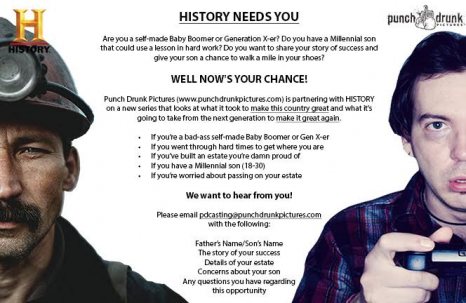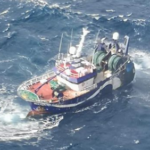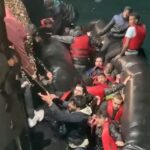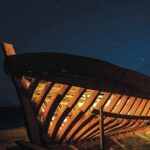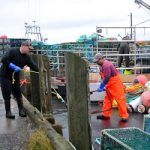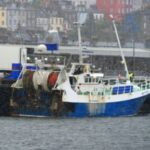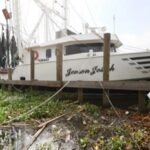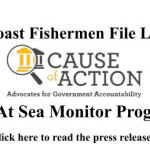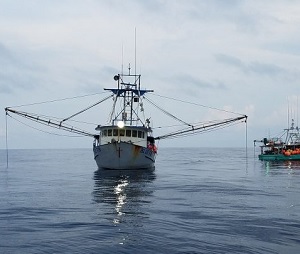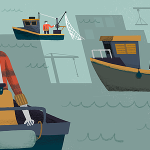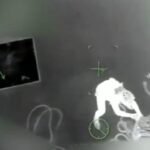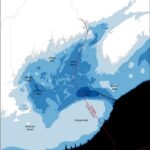Daily Archives: May 4, 2017
Trap Gear Closure Lifted; Right Whales Leaving Cape Cod Bay
 The trap closure extension in Cape Cod Bay has been lifted effective Friday May 5 because nearly all the whales that were aggregated in Cape Cod Bay have departed as expected. DMF filed emergency regulations last week to extend the prohibition of trap gear within certain waters of Cape Cod Bay. This closure extension was enacted because in mid-April there was an unprecedented aggregation of over 200 right whales feeding on dense plankton, and more than 100 remained just days before the scheduled May 1 opening. Feeding right whales are susceptible to entanglement in vertical buoy lines. click here to read the notice 22:55
The trap closure extension in Cape Cod Bay has been lifted effective Friday May 5 because nearly all the whales that were aggregated in Cape Cod Bay have departed as expected. DMF filed emergency regulations last week to extend the prohibition of trap gear within certain waters of Cape Cod Bay. This closure extension was enacted because in mid-April there was an unprecedented aggregation of over 200 right whales feeding on dense plankton, and more than 100 remained just days before the scheduled May 1 opening. Feeding right whales are susceptible to entanglement in vertical buoy lines. click here to read the notice 22:55
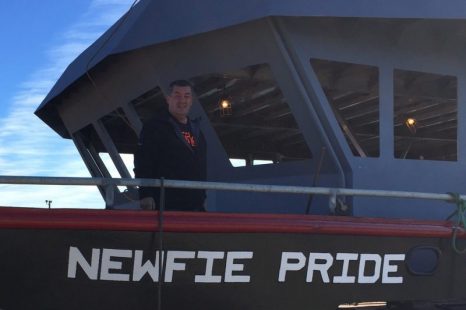
Northern Peninsula shrimp fishers see no reason to fish in 2017
The Fish, Food and Allied Workers (FFAW) union held a meeting for the 4R fleet in Hawke’s Bay on April 24. FFAW 4R chair, Rendell Genge, and the 4R vice chair, Roland Genge, both from Anchor Point, say that if the current outlook persists, in regards to prices and quotas, it’s likely that none of the 4R fleet will participate in the northern shrimp fishery this year. Earlier this year, the Department of Fisheries and Oceans (DFO) announced the northern shrimp quota in shrimp fishing area 6 (SFA 6) would be cut by 63 per cent. Coming on the heels of this was the news that the price for northern shrimp has dropped from $1.40 per pound in 2016 to $0.95 this year. The 4R fishers say they want better prices for shrimp before they can even think about fishing for it. To give a sense of how drastic the reductions in quotas and price would be this year, Roland explained the math. click here to read the story 21:18
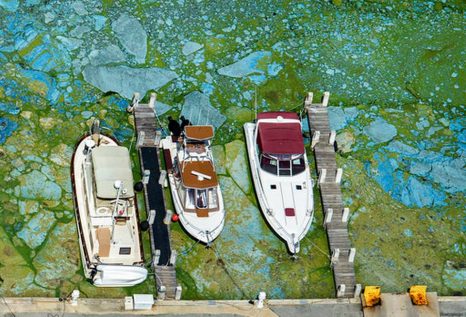
Florida’s building boom threatens wildlife-rich lagoon
The most biologically diverse waterway in America is seriously ill. The Indian River Lagoon is repeatedly being choked with oxygen-robbing algae, its surface increasingly dotted with thousands of dead fish, manatees, birds and other creatures. The culprits: farm runoff and a huge influx of people that has sent lawn fertilizer and other pollutants into the lagoon, which runs 156 miles along Florida’s Atlantic Coast, almost to Palm Beach, and includes the Cape Canaveral area. “It’s the death by a thousand cuts,” said Bob Knight, an environmental scientist with the Howard T. Odum Florida Springs Institute who has studied Florida’s waters for 40 years. The lagoon’s woes threaten the region’s $2.5 billion recreation, fishing and tourism economy, alarming kayak tour operators, charter boat captains, restaurateurs and organizers of bird-watching festivals. click here to read the story 19:48
Casting Call!
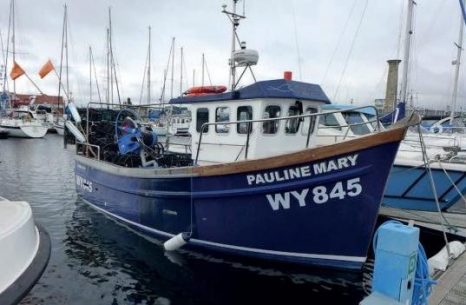
MAIB Report: Fisherman’s desperate attempts to save life of brother dragged beneath the waves off coast near Hartlepool
An experienced young fisherman became fatally entangled in ropes when unsafe practices were being carried out onboard a commercial fishing boat, a report has concluded. Lee Renney was dragged under water while working on the Pauline Mary off the coast of Hartlepool last September. Today, the Maritime Accident Investigation Branch has issued a damning report about the fatal accident. The 22-year-old was working alongside his brother, who was the skipper of the boat, when he was pulled overboard as he was dropping the lobster pots. Investigators said the brothers – both experienced fishermen from Hartlepool – had only been working on the Pauline Mary for two days and were laying out the pots for the first time from the vessel. click here to read the story 13:44
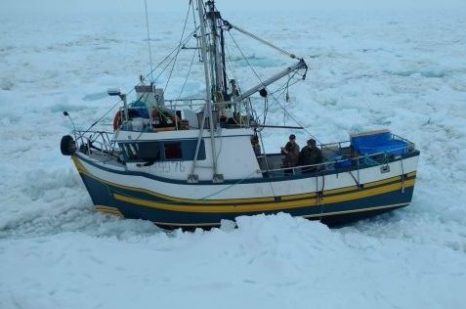
Sandy Stokes and the C.C.Venture spent four days stuck in Bonavista Bay
After days stuck in pack ice in Bonavista Bay, Sandy Stokes and the crew of the C.C. Venture freed themselves with some clever thinking. With only a few hundred meters to go before they would drift into Gull Island, near Bonavista, the crew “concocted” a plan to tie the boat onto a large ice pan, hoping it would continue its course away from the land mass. “We figured our best chance was to get some rope to that pan that we could see that was actually moving outside the island, just to see if it would tow us out any,” Stokes said Wednesday. “And it did, it worked perfectly.” After getting itself stuck in ice in Bonavista Bay, and drifting from Gooseberry Island, near Saint Brendan’s to Bonavista, the C.C. Venture finally freed itself on April 25 — five days after their sealing trip began. click here to see more images, read the story 12:18
Washington Fish and Wildlife Commission to discuss Columbia River reforms on Friday
The 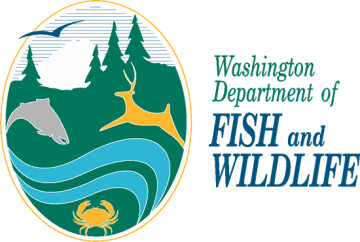 Fish and Wildlife Commission will meet by teleconference at 8:30 a.m. Friday to discuss the Columbia River salmon reforms. The public may listen to the discussion at the Department of Fish and Wildlife office, 2108 Grand Blvd. Earlier this year, the Washington and Oregon commissions adopted slightly different policies regarding the overhaul of sport and commercial fishing regulations for the lower Columbia. The biggest difference is the allocation of fall chinook salmon in 2017 and 2018, plus Washington’s intention to eliminate the use of gillnets beginning in 2019. Commission members on Friday will discuss and clarify the guidance they are giving Jim Unsworth, department director, in his negotiations with Oregon. Link 11:50
Fish and Wildlife Commission will meet by teleconference at 8:30 a.m. Friday to discuss the Columbia River salmon reforms. The public may listen to the discussion at the Department of Fish and Wildlife office, 2108 Grand Blvd. Earlier this year, the Washington and Oregon commissions adopted slightly different policies regarding the overhaul of sport and commercial fishing regulations for the lower Columbia. The biggest difference is the allocation of fall chinook salmon in 2017 and 2018, plus Washington’s intention to eliminate the use of gillnets beginning in 2019. Commission members on Friday will discuss and clarify the guidance they are giving Jim Unsworth, department director, in his negotiations with Oregon. Link 11:50
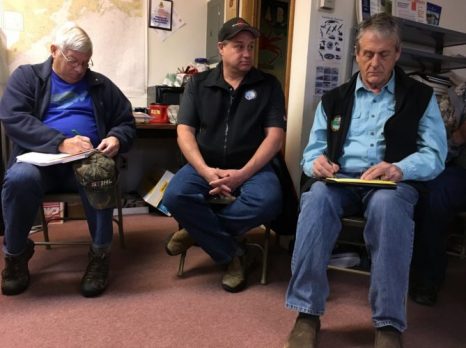
Petersburg fishermen share concerns with ADFG leadership
Two of Alaska’s top Fish and Game leaders visited Petersburg April 28 to hear from local fishermen. They discussed a variety of topics including state budget cuts to herring management and the federal observer program. About two dozen fishermen are packed into the office of the Petersburg Vessel Owner’s Association. Among the makeshift circle is Sam Cotten, the Commissioner of Fish and Game and Scott Kelley, the Director of the Division of Commercial Fisheries. Besides herring, the local fishermen also want to discuss the observer program for long liners of halibut and sable fish. It’s not a hugely popular program with fishermen because it requires them to take along a designated person to watch the fishing and document the catches. And fishermen help pay for the program through fees. They’re wondering why isn’t the program getting cut? And why are they having to fill out surveys on their catches and get observed? click here to read, listen to an audio report 10:55
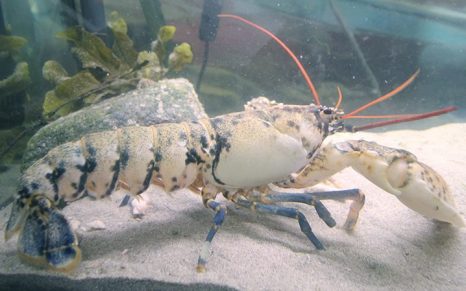
The Luck of the Irish! – Fisherman catches rare one-in-100 million albino lobster off the west of Ireland coast
A ONE-in-100 million white albino lobster has been donated to an Irish aquarium after it was saved from the chef’s cooking pot by a fisherman in Ireland. Local fisherman Charlie O’Malley caught the rare crustacean in his nets off the coast of Achill Island in Co. Mayo. The chance of catching a ‘ghost’ lobster like the one found in Achill is approximately one-in-100million. For comparison, the odds of winning the Lotto jackpot in Britain is around one-in-14million. (its certainly the prettiest lobster I’ve seen!) Click here to read the story. 09:32
Canada: Atlantic bluefin tuna not listed as an endangered species
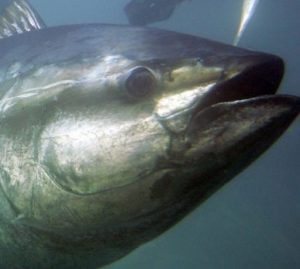 Atlantic bluefin tuna will not be listed on the endangered species list, a decision released Wednesday. The federal government’s final decision was published in the Canada Gazette saying it would not be listed under the Species at Risk Act (SARA). Fisheries and Oceans Canada rejected advice to list the species as endangered last summer, saying western Atlantic bluefin tuna stocks have been rebuilding since 2011, when the Committee on the Status of Endangered Wildlife in Canada (COSEWIC) said tuna should be listed as an endangered species under federal species-at-risk legislation. Included in the decision was the government’s rationale and the steps that will be taken to help in its recovery. If the species would have been listed on SARS, it would no longer have been allowed to be fished commercially. The in Halfax is calling on the government to take steps to work and conserve the species. (of course!) click here to read the story 08:21
Atlantic bluefin tuna will not be listed on the endangered species list, a decision released Wednesday. The federal government’s final decision was published in the Canada Gazette saying it would not be listed under the Species at Risk Act (SARA). Fisheries and Oceans Canada rejected advice to list the species as endangered last summer, saying western Atlantic bluefin tuna stocks have been rebuilding since 2011, when the Committee on the Status of Endangered Wildlife in Canada (COSEWIC) said tuna should be listed as an endangered species under federal species-at-risk legislation. Included in the decision was the government’s rationale and the steps that will be taken to help in its recovery. If the species would have been listed on SARS, it would no longer have been allowed to be fished commercially. The in Halfax is calling on the government to take steps to work and conserve the species. (of course!) click here to read the story 08:21
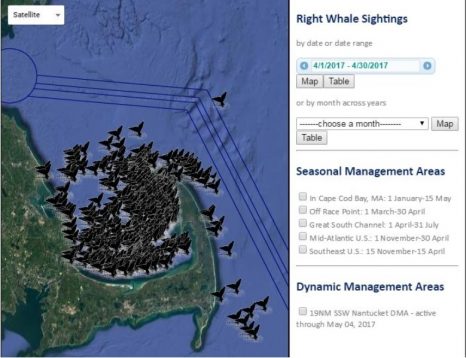
No lobstering until right whales leave Cape Cod Bay
For the past three years there has been a ban on setting lobster traps and pots in the bay from Feb. 1 through the end of April, a ban intended to protect these whales from entanglement. Last week by some counts close to 200 of the estimated total population of 500 Atlantic Western Right Whales were still in Cape Cod Bay. Citing their endangered status and their surprising willingness to stay in the bay because of an abundance of the plankton they feed on, the state’s Division of Marine Fisheries announced that most of the bay would remain closed to setting recreational and commercial lobster traps and pots through next Sunday, May 7. For environmentalists involved in the protection of this species of whale the extended ban was a reasonable, measured action. For many lobstermen it was salt on an open wound. click here to read the story 07:56






